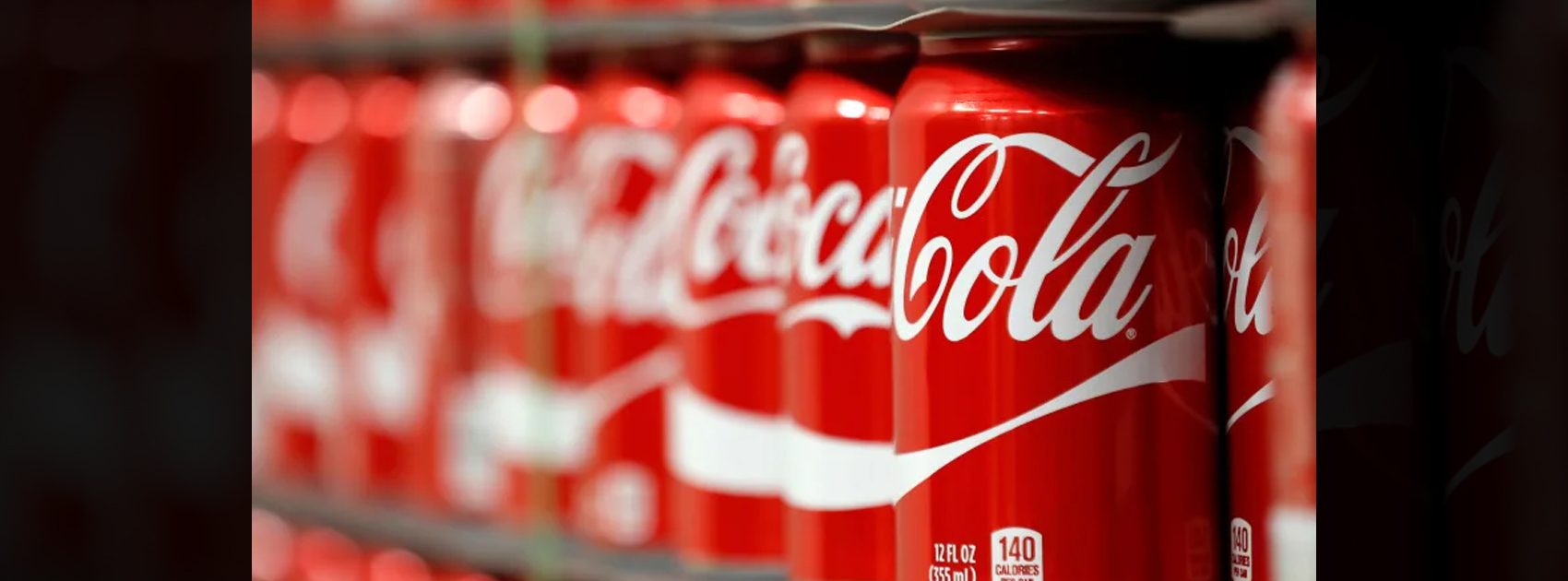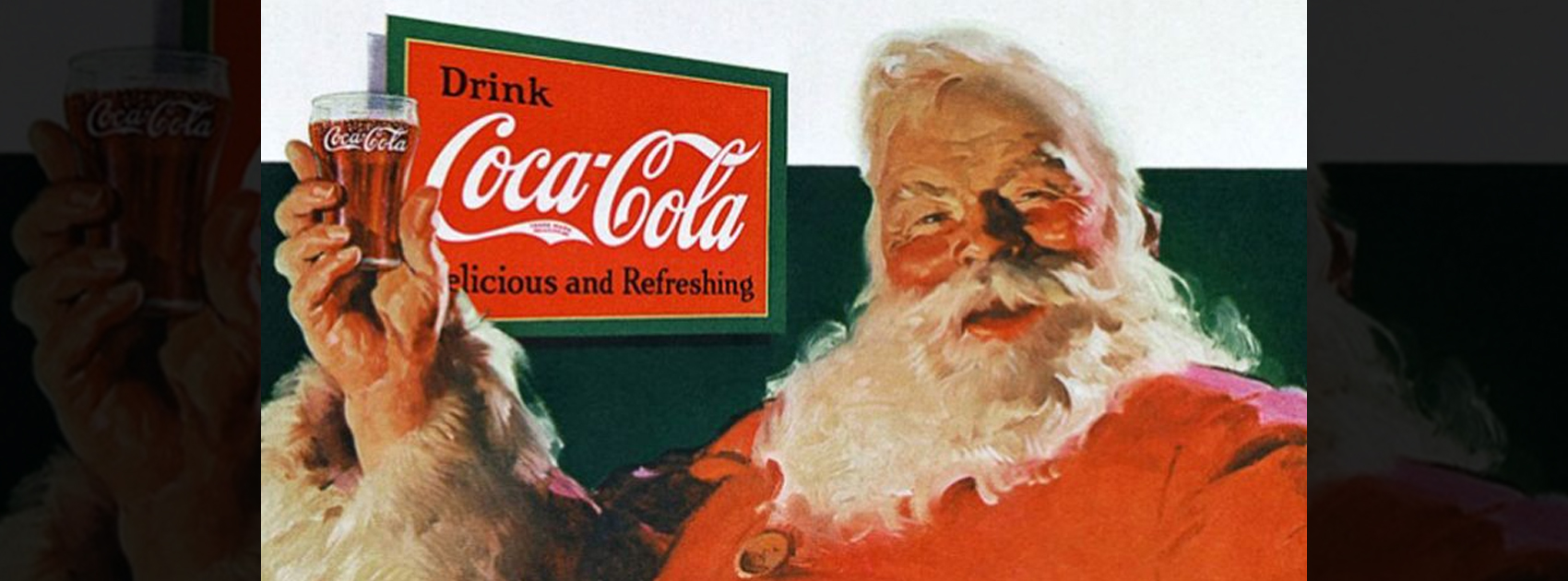Stories
Best Coca-Cola Marketing Campaigns

Coca-Cola has been a dominating name in the soft drink industry for the last century. One of the factors behind the brand’s popularity is its incredible, effective and innovative marketing campaigns. Let us look at some of the most memorable and successful marketing campaigns done by Coca-Cola.
Best marketing campaigns by Coca-Cola
1) Christmas campaign, 1930

Often credited for popularising the modern image of Santa Claus, Coca-Cola introduced the red and white santa image first in 1931, as a part of its winter advertisement. Created by artist Haddon Sundblom, the image was used by the Company as a brilliant marketing tool and it became so successful, children started leaving bottles of Coke for Santa Claus, on Christmas night.
2) Hilltop, 1971
Hilltop is one of the biggest groundbreaking television commercials by Coca-Cola till date and is considered the world’s most famous ad by many. The advertisement featured a group of young people from different ethnicities singing I’d Like to Teach the World to Sing (In Perfect Harmony) on a hilltop in Italy. The advertisement was an instant hit and the song became synonymous with Coca-Cola.
3) Always Coca-Cola, 1993
In 1993, Coca-Cola decided to experiment with the then fairly recent technology, computer animation. This resulted in the creation of Coca-Cola polar bears, which are featured frequently in the Company’s various advertisements since then. The campaign featured 27 different advertisements which appealed to a wide range of customers. Out of the 27 commercials, the ‘Northern Lights’ advertisement became the most popular and polar bears became mascots of the Company.
4) Share a Coke, 2014
One of the best performing campaigns in recent times, Coca-Cola’s ‘Share a Coke’ campaign was introduced in the summer of 2014. The Company used 250 most common millennial names to market its products and the campaign quickly gained international recognition. Over 500,000 photos with the tag #ShareaCoke were shared online within a year.
5) Taste the Feeling, 2016
The ‘Taste the Feeling’ campaign was an update to Coca-Cola’s previous “Open happiness” tagline. The campaign featured 10 TV commercials and showed the feeling which surrounds drinking a bottle of Coke. The campaign featured the song Taste The Feeling, sung by late Swedish DJ Avicii and Australian singer Conrad Sewell.
By putting more emphasis on the brand instead of its products, Coca-Cola has become one of the most successful companies in the world, with a net worth of $ 227.4 billion.
Entrepreneur Stories
Zupee Bolsters Short-Video Play with Vertical TV Acquisition Under INR 40 Cr

Delhi NCR-based gaming startup Zupee has acquired Mumbai-based microdrama platform Vertical TV in a deal valued under INR 40 Cr. This move strengthens Zupee Studio, its short-video arm launched in September 2025, by integrating Vertical TV’s expertise in bite-sized dramas like romance and thrillers.
Facing challenges from India’s 2025 real-money gaming ban, Zupee valued at $1 Bn after raising $120 Mn has pivoted to non-gaming content, including recent layoffs of 40% of its workforce. The acquisition builds on its November 2025 purchase of Australian AI firm Nucanon for interactive storytelling, targeting its 200 Mn+ users with engaging, mobile-first formats.
This deal underscores the rising microdrama trend in India, helping Zupee diversify amid regulatory pressures and compete in the short-video space dominated by quick, shareable content for on-the-go audiences.
Videos
T.N. Seshan: The Fearless Reformer Who Redefined Indian Democracy

T.N. Seshan’s name stands tall in India’s history as the man who transformed the nation’s electoral system with extraordinary courage and integrity. Born in 1932 in Kerala, Seshan grew up with values of discipline, education, and service to the nation — virtues that shaped his illustrious journey. From his early brilliance at Madras Christian College to his advanced studies in public administration at Harvard University, Seshan’s path reflected rare determination and intellect. Joining the Indian Administrative Service in 1955, he built a reputation as a no‑nonsense officer committed to efficiency and honesty, serving in key roles such as Secretary of Defense and overseeing vital national programs.
As the Chief Election Commissioner of India in 1990, T.N. Seshan sparked a new era of electoral integrity. In a system once marred by corruption, violence, and malpractice, Seshan brought order, fear, and respect through his groundbreaking reforms. He introduced voter ID cards, imposed strict spending limits on campaigns, and insisted on transparency at every level of the election process. Despite criticism from political circles that labeled him dictatorial, his relentless pursuit of fairness empowered every citizen to vote fearlessly. Under his leadership, the Election Commission became a symbol of strength and integrity in Indian democracy.
Seshan’s passing in November 2019 marked the end of an era, but his message continues to resonate across generations. Leaders from every corner of the country mourned the loss of the man who restored faith in free and fair elections. His enduring legacy reminds us that true leadership lies not in wielding power, but in serving people with honesty, courage, and conviction. T.N. Seshan’s life remains a timeless inspiration a reminder that democracy thrives only when its citizens are vigilant, responsible, and fearless.
Entrepreneur Stories
Indian Man Quits JPMorgan, Takes 70% Pay Cut to Launch $6 Million Startup

Leaving behind a high-paying job at JPMorgan, an Indian entrepreneur embraced a 70% salary cut to pursue true purpose and passion in the startup world. Disenchanted with what he described as a “robotic” corporate routine, he sought meaningful work that made a real impact. This pivotal decision marked the beginning of his new journey, one focused on value creation rather than titles and corporate perks.
Powered by resilience and fresh perspective, the entrepreneur launched his own startup, prioritizing innovation and hands-on solutions. The road was challenging, but his vision resonated with the market: the startup quickly gained traction and raised $6 million—an impressive acknowledgement of its potential in a competitive landscape. Every hard lesson from early setbacks and bootstrapping paid off in real customer growth and investor confidence.
Today, his journey stands as an inspiring example for professionals seeking authentic success outside the corporate grind. By trading comfort for creative freedom, he grew a venture that solves important problems, generates jobs, and builds wealth beyond just salary. For ambitious founders, his story highlights the power of risk-taking, adaptability, and relentless focus on impact in India’s thriving startup ecosystem.













J88
November 7, 2025 at 6:19 am
Đến với J88, bạn sẽ được trải nghiệm dịch vụ cá cược chuyên nghiệp cùng hàng ngàn sự kiện khuyến mãi độc quyền.
谷歌站群
November 7, 2025 at 5:47 pm
专业构建与管理谷歌站群网络,助力品牌实现全域流量的强势增长。谷歌站群
MM88
November 8, 2025 at 5:40 pm
Khám phá thế giới giải trí trực tuyến đỉnh cao tại MM88, nơi mang đến những trải nghiệm cá cược thể thao và casino sống động.
ios超级签
November 9, 2025 at 8:45 am
苹果签名,苹果超级签平台,ios超级签平台ios超级签苹果企业签,苹果超级签,稳定超级签名
MM88
November 13, 2025 at 7:26 pm
Với giao diện mượt mà và ưu đãi hấp dẫn, MM88 là lựa chọn lý tưởng cho các tín đồ giải trí trực tuyến.
谷歌外推
November 14, 2025 at 2:52 pm
采用高效谷歌外推策略,快速提升网站在搜索引擎中的可见性与权重。谷歌外推
iwin
November 15, 2025 at 11:47 pm
iwin – nền tảng game bài đổi thưởng uy tín, nơi bạn có thể thử vận may và tận hưởng nhiều tựa game hấp
chanced casino
December 18, 2025 at 12:37 pm
chanced casino chanced casino
holland casino venlo neukundenbonus
December 21, 2025 at 7:13 am
Wenn Sie auf einen Einzahlungsbonus von 50 € stoßen, werden Sie nicht plötzlich zum Millionär, indem
Sie in einem Online-Casino spielen. Ein weiteres
attraktives Angebot ist das Casino mit 50 Freispielen ohne Einzahlung,
das Spielern Freispiele anstelle von Bargeld bietet. Handelt es
sich um eine seriöse Online Spielhalle, gefallen die angebotenen Games, gibt es
einfache und gebührenfreie Zahlungsmethoden und wie ist die Usability
der Website, um nur einige Beispiele zu nennen. Anders ist es
da beionline Casino Bonus code Bestandskunden ohne Einzahlung, die ihre Stammspieler
behalten wollen. Dahingegen kannst Du mit einem Echtgeld Bonus ohne Einzahlung an verschiedenen Slots spielen, während dies bei den Freispielen oft auf einen bestimmten Slot eingeschränkt ist.
Dennoch solltest du dich so verhalten, als würdest du mit deinem Echtgeld spielen.
Auch Freispiele werden häufig ohne Einzahlung vergeben. Egal, ob ein 50 Euro Bonus, 50
Freispiele ohne Einzahlung, 10 Freispiele ohne Einzahlung oder spezifische Freispiele für Book of Dead.
Allerdings sind diese 50 Freispiele oft nur für eine begrenzte Anzahl von Spielautomaten gültig, und der Zeitrahmen für ihre Aktivierung ist meistens kurz.
Als Slot Liebhaber haben Sie sicher Freude an Freispielen ohne Einzahlung!
Kostenlos spielen können Sie am besten mit einem
Bonus ohne Einzahlung. Auch Bestandsspieler werden in Top Online Casinos immer wieder
belohnt. Allein auf unserer Vergleichsseite haben wir schon viele
Anbieter für Sie getestet, die großartige Bonusangebote liefern.
Wir nehmen unseren Ruf als eine der besten Plattformen für kostenlose Casino Bonusangebote sehr ernst.
Melde dich für unseren zweiwöchigen Newsletter
an und erhalte Zugang zu Turnieren, erfahre alles über die besten Bonusangebote, Warnungen vor unseriösen Casinos und
mehr!
References:
https://online-spielhallen.de/cashwin-casino-promo-code-ihr-schlussel-zu-exklusiven-vorteilen/